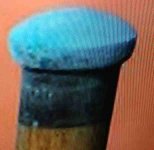That's the point. Every time snooker players have they've had no problem making the adjustment but with the pathetic state of American pool other then the misconi cup why would they bother. Stop trying to act like we're comparing football to baseball. There a lot a like except snooker takes a hell of a lot more accuracy and its played on a much larger table where pool in this country is played on miniature kiddy equipment in comparison.
I've said it 100 times.. If American pool players could play snooker with all the money and sponsors they would ... They can't and they know it. Seeing how well snooker players can easily adjust to American rotation is only a you tube search a way lol
There's zero snooker scene in the US. Most rooms might have 2 tables at most, and even if an American pool player wanted to take up Snooker full time, it'd be tough to find the competition stateside to improve their game and take it to the next level. They'd have to move to the UK and spend a few years getting seasoning, which is pretty much an impossibility given the financial situation most pool players find themselves in.
Steve Davis said the exact same thing about him and pool, Just because a few snooker players can manage to win a short set now and then, doesn't mean they're anywhere near the level of American pool playing professionals. Ronnie O'Sullivan, after practicing for a year, finished behind Loree Jon Jones in the IPT :embarrassed2:. And Jimmy White couldn't even win a match, only managing two break and run outs, while 80 year olds like Ray Martin were beating the likes of Corey Deuel.
I also hate the "transition" argument. The reason the "transition" appears to be easier is because pool, especially 9 ball, has more variance. I see sets in 9 ball as equivalent to frames in snooker, and if 9 ball tournies were structured to eliminate that variance (i.e. best of 5 sets, each set a race to 10), snooker players would fare similarly as American pool players do in snooker.
Anyhow, pool players can play snooker at a high level with limited experience. Steve Mizerak won a frame against Steve Davis in that 80's challenge match (using his pool cue and firing in 9 foot long pots like no one's business) and Oliver Ortmann had a 75 unfinished break (also using his pool cue) against Quinten Hann in the '99 Lindrum masters.
I think the best game we have at the moment to compare the relative cueing prowess of pool players vs. snooker players is Chinese 8-ball. Those tables are more snooker tables than pool tables, and are built more for the snooker player's punch and stun stroke than the pool player's power stroke. The pockets are cut so that you can't use too many pool playing angles and English and have to, again, use lots of stun and punch. Other than the game being 8-ball (which many snooker players are familiar with playing British 8-ball), a snooker player should have the advantage in that game.
But we saw Earl beat Hendry (both players of the same vintage) and Appleton beat Selby in the Finals.
Point is, snooker players aren't inherently better cueists just because they play on a larger table with smaller pockets. Nor is snooker an inherently harder game (how do you quantify harder, anyhow? The difficulty of any game is usually defined by how good your opponent is) just because of the length of the table and its tight pockets. Balls are harder to make, yes, but since pool is a more offensive game, means you get punished more easily by your opponent for your mistakes. In snooker, you can easily use length in a safety battle, without needing to hook your opponent. In 9-ball, you better lock up or you could be dead, for multiple racks.
As the other guy said, snooker vs. pool...sigh.
